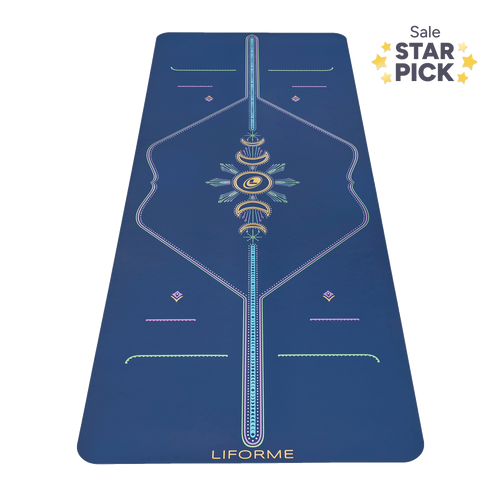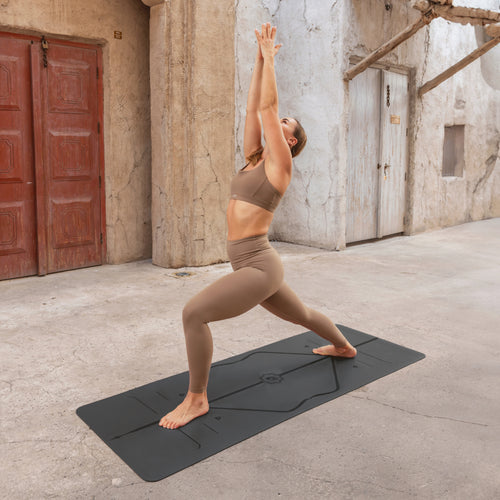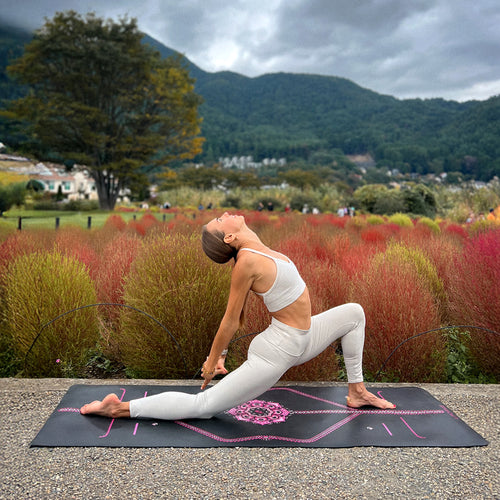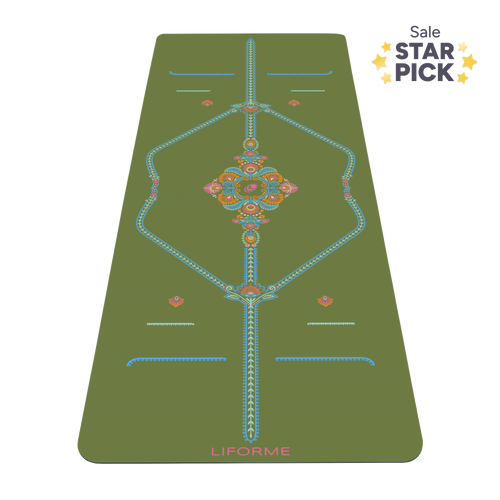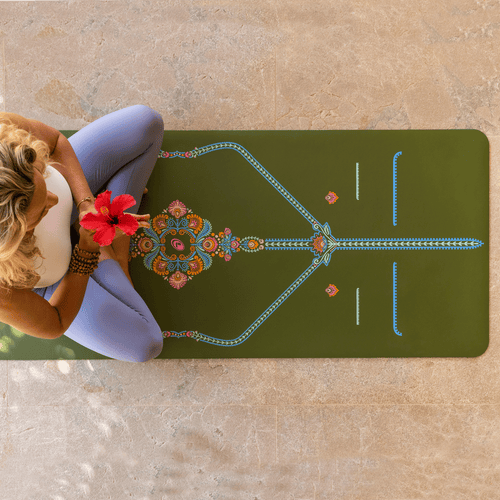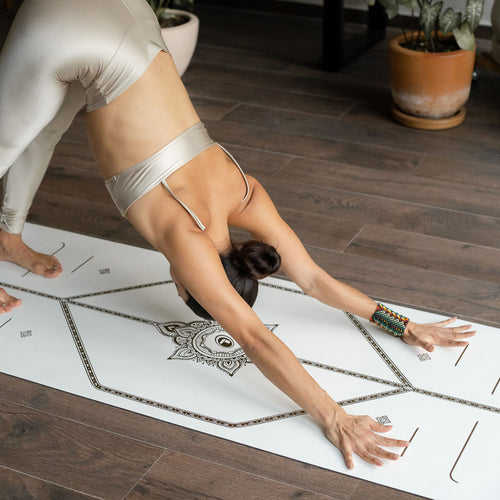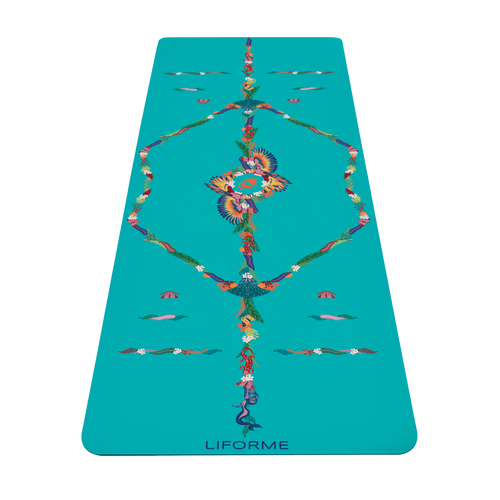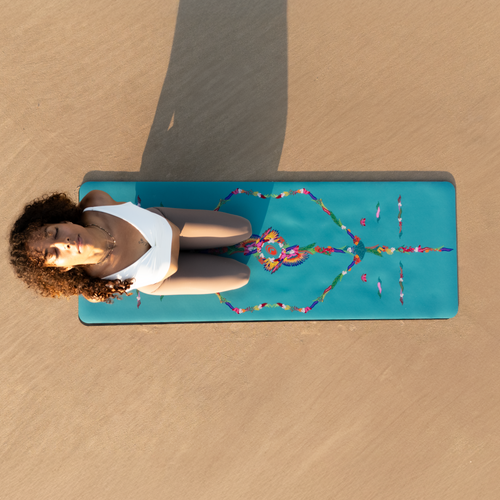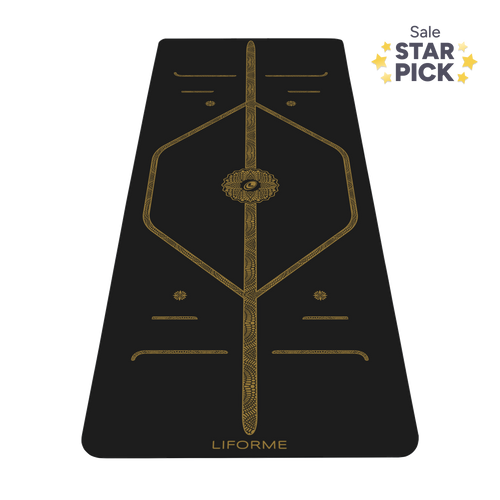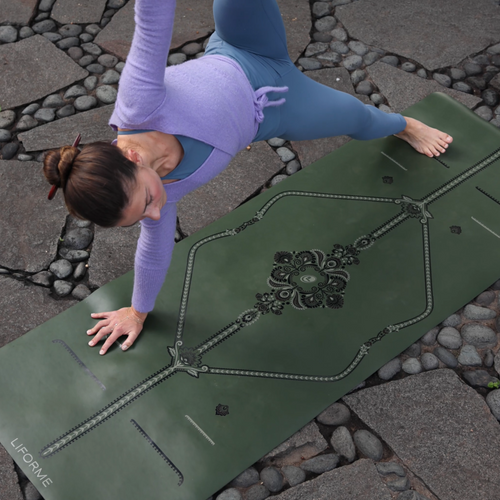David Behrens specialises in the clinical applications of mindfulness and meditation in the treatment of mental illness and addiction. He spent 27 years living as a monk in India before moving to England to become a homeopath in 2007. He spoke to Live For More about how his personal spiritual journey led him to insights about mindfulness that have allowed him to help others.
Tell us about your background, how you came to be in India and spend so long there studying.
I think my interest in the Eastern traditions began when I was around 14 years old and my older sister came home with a book on yoga. This was in Brooklyn, New York, and she went with the book straight into her room and when I peaked in, she was doing a shoulder stand. And there I was, saying, “Whoa, that looks interesting!” And somehow, it touched something inside me.
Then, in my first year of college, there was a teacher who was a pretty accomplished hatha yogi, who had studied with Sivananda, and taught at Brooklyn College and I loved it. And that kind of opened up a door and I thought maybe one day I would go to India.
Eventually, about one or two years later, I found my way to India, and then I was very focused on practicing and, pretty quickly, there was an opportunity to become a monk. And it was such a big thing but I said, “maybe this is it.”
So I became a monk in my early twenties, and it was a lot of study, a lot of practice, and that was my life, studying meditation, studying yoga, studying the different philosophies, having a lot of wonderful inner experiences where I really felt the power of meditation.
The spiritual practices have always served me in that way. They nourish you. They take care of you. They cleanse you, and they build your energy. And they sustain your energy, from physical energy to actual spiritual energy, where you feel dynamically full inside.
Can you talk a little more about the path you took as a monk?
I did a lot of study and I think the beauty was that the learning was always based on three factors. One is that whatever you learn is already written, say in an ancient scripture, it’s not that there’s one teacher and he’s offering something that’s never been offered before. If you study the lives of the great masters, they will always go back to the original scripture where it was written and show that it’s always been there. So I would study the scripture and then the second important thing is you had to practice it. You had to try it on, like a pair of clothes.
And the third thing is that you had to have an experience. You had to feel that it was supporting your life, it was making you happier. It was creating more discipline and more well-being. And it worked. It couldn’t be that it was just this wonderful philosophy. You should really feel that this is helping me. It’s making me feel more complete inside or it’s making me feel more filled with great energy. And at the same time, I should be able to feel more purpose in my life.
The spiritual practices have always served me in that way. They nourish you. They take care of you. They cleanse you, and they build your energy. And they sustain your energy, from physical energy to actual spiritual energy, where you feel dynamically full inside. And usually that makes you want to dedicate yourself to helping others. At least that’s what it did for me.
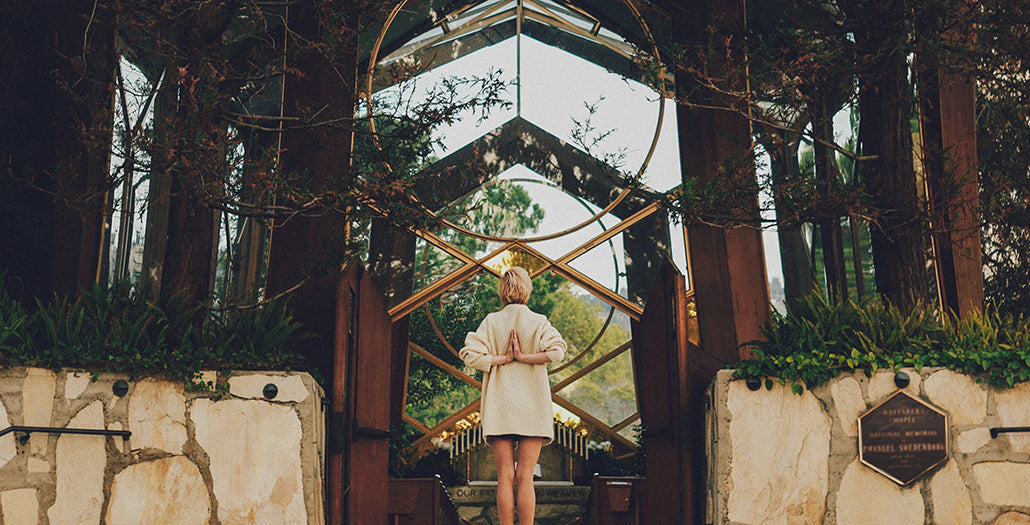
How did you then come to return to the west and work with people with mental health and addiction recovery?
I think being a monk, you’re always reflecting to ensure that whatever you’re doing, you’re completely present with it and your heart is with it and it is serving you in your overall growth. And that was something I’ve always wanted. I wanted it to keep giving me more knowledge and growth and maturity and at a certain point, it was about nine years ago, it felt it was time to seek another lifestyle.
Usually, in the Eastern tradition, you go the other way. You become a householder and then you’re known as a forest dweller and then you go into the renunciation phase. But I was very young when I became a monk and I kind of went the other way around. There was a lot of support for my transition, and I found that there wasn’t really a big change because everything I had learned, that was my support. My daily practice of meditation, studying the scriptures of the Eastern traditions, and making that my vision, that just continued, but now instead of wearing the robes of a monk, I was a householder.
Awareness means you sense that you’re present, you’re here, and you’re able to watch how the mind changes.
It was also time to have a career and I studied to become a homeopath. My wife and I are both homeopaths, because I found that was one of the best medicines of all the alternative medicines. It helped me so much in India. So I became a homeopath and then, it was about five years ago, I felt it was time to take decades and decades of study and learning and apply it in a clinical setting.
Through my work with the NHS Recovery Colleges for mental health, the London Charter Harley Street Rehab Centre, and the Nelson Trust, which is one of the main trusts for addiction, I found that the formula that became the most interesting was the combination of two factors, especially with mental health and addiction. These are the factor of awareness and the factor of being able to guide your mind.
When you’re working with someone who is mentally ill, their ability to be aware of their own mind is really limited. Awareness means you sense that you’re present, you’re here, and you’re able to watch how the mind changes. When you’re not healthy, the mind changes and it consumes you, it overwhelms you, and you lose a sense of yourself. And I found that the mindfulness especially allowed a person to get that ability back.
The second biggest factor is being able to guide one’s mind. During mental illness, the mind gets in a loop or it gets in a hallucination or it completely becomes unconscious and you can’t come out of it or guide yourself back to daily activities. And I found the simple practice of mindfulness is so helpful: being present, guiding your mind, bringing it to the breath, and finally getting a little stillness, because being with such an unstable mind is exhausting.
…meditation is a more classical practice, a time set aside when I’m with myself. I’m focusing inward and I’m going deeper and discovering myself, whether it’s through mantra or through being with the breath or witnessing the mind.
I found the same thing happened with addiction. If you become addicted to a substance or a particular behaviour, you lose the ability to be aware and you lose the ability to guide your mind. And that’s one of the keys in addiction, building back guidance, which translates into choice. And I studied the science on that. If a person becomes addicted to a substance, the prefrontal cortex of the brain becomes weak and that’s executive decision making. And it’s amazing that you practice mindfulness and you gain back the power of choice. So when cravings come or an intense need for the drug, or you need to do the behaviour that you’re addicted to, you can somehow be with it with a little distance, and then you can guide your mind to a safer place. And it actually is built back by daily practice.
What is the relationship between mindfulness and meditation?
The way that I have understood it and practiced it, meditation is a more classical practice, a time set aside when I’m with myself. I’m focusing inward and I’m going deeper and discovering myself, whether it’s through mantra or through being with the breath or witnessing the mind. So using different techniques, but it’s a time where you’re just with yourself.
I would say that mindfulness is the bigger word. It’s about being present in life. It’s about learning how to navigate in your own inner world and outer world. Inner world is your mental and emotional world. Navigate means that you’re able to move there.
And I would say that mindfulness is the bigger word. It’s about being present in life. It’s about learning how to navigate in your own inner world and outer world. Inner world is your mental and emotional world. Navigate means that you’re able to move there. So if you’re like a boat, you can steer the boat. And if intense waves come, or different challenges come with emotions or thoughts, you can move with them. You can decide which one to go with and which one not to go with. You can guide yourself. So the mindfulness is being more present. It’s not so much turning the mind inward to discover the deeper self. Mindfulness is so much about day-to-day life.
So you’ll have your meditation, where you will sit for your classical time each day, or twice a day, and the mindfulness might be when you’re at work. I’m mindfully doing my tasks, I’m taking a walk, I’m just present in what I feel, what I see, just in my senses and my body. Or, at times, I’m aware of my breath to get centred. So I would say mindfulness is more the day-to-day life application of being available. And being the master of your life.

Why do you think that mindfulness is catching on at the moment?
Mindfulness has always come, throughout history, when society needed it. It’s nothing new. All you have to do is get out the history books. Study the lives of the great masters of meditation and find out when they taught. And it will always be when the society needed it.
Mindfulness has always come, throughout history, when society needed it. It’s nothing new. All you have to do is get out the history books. Study the lives of the great masters of meditation and find out when they taught. And it will always be when the society needed it.
I think intuitively everybody realises when they need help. When it’s not going right or life is beginning to unravel. And it’s happening for many people. There’s a lot of challenges, so I think that’s why.
So if people feel that they want this help but they don’t know how to access it, how would you advise them?
Mindfulness is for everybody. Every human being needs to gain a very healthy relationship to their own mind, their emotional world, and they can build that relationship with stronger focus.
It is very accessible now, there are so many books, there are so many YouTubes. It does help to have some guidance at first but the most important thing is that you do the practice and you taste it. A teacher is helpful or a good book to study from, but like everything in life, in the end you have to make it your own. Once you learn the basics, you can build upon them. It has to fit in your life the way you are. And who you are.
There’s so much out there for everybody. You don’t have to be clinically ill or addicted. It could just be that you want to become more alive. More present in life. You want to gain more skill to live life in the best way.
Yoga is very interesting. People should always think of the definition of yoga in Sanskrit. The definition is union. It’s union with the individual self, with the universal self. And, of course, in hatha yoga you work with the body to experience that greater union.
What about yoga asana practice?
Yoga is very interesting. People should always think of the definition of yoga in Sanskrit. The definition is union. It’s union of the individual self, with the universal self. And, of course, in hatha yoga you work with the body to experience that greater union. It’s also one of the best forms of exercise: it’s perfect for balance, it’s great for building stamina. So depending on your goals, hatha yoga is great and there are so many forms of it that people practice today, whether you do it as exercise or you do it as a deep spiritual practice. And if it is deeper, it eventually leads into meditation. It leads into working with the breath. It leads into an inner focus and then it starts becoming somewhat esoteric because it is all about the awakening of spiritual energy. That was the purpose of hatha yoga, if you read the original scriptures from thousands of years ago.
Is there anything else you’d like to share about the benefits of mindfulness?
What I’ve found more than anything is that to be healthy in life is a multi-levelled experience. It’s mind, it’s body, it’s emotional world. It’s spirit, it’s relationships, it’s all those aspects, and we have to take care of all those things.
What I’ve found more than anything is that to be healthy in life is a multi-levelled experience. It’s mind, it’s body, it’s emotional world. It’s spirit, it’s relationships, it’s all those aspects, and we have to take care of all those things. Eventually, we turn towards different ways to build those abilities, to be truly healthy, happy in a holistic way. Mindfulness and meditation are really for everyone because they also will support you if you’re religious, if you’re not interested at all in spirituality, if you just want to build your ability to be present in life. It’s a skill not just to get healthy when you’re ill. It’s a skill to shine more, and be more available in life.
David is available to continue this conversation and answer any questions on how Mindfulness Meditation can support you in your life. Contact him through his website, http://mindfulnessprograms.org/.
This interview has been edited and condensed for clarity.





